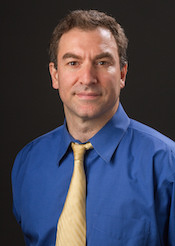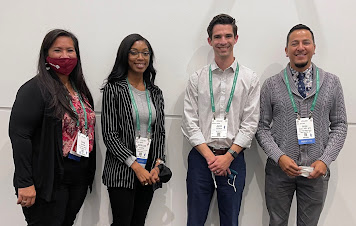With an emphasis on promoting community wellness, Ashley Williams, M.D., joined USA Health as a critical care surgeon at University Hospital and as an assistant professor of surgery at the USA College of Medicine.
Williams moved to Mobile in 2015 to complete a residency at USA Health’s University Hospital. During that time, she helped develop Project Inspire, a mentorship program for youth in the Mobile area who had early encounters with the juvenile justice system. Williams co-founded Project Inspire with Jon Simmons, M.D., chief of trauma and acute care surgery at USA Health. The program’s goal is to provide its young participants with positive influences and learning experiences to set them on a path to brighter futures.
Williams was compelled to develop Project Inspire after noticing that many patients who received trauma care were alarmingly young victims of violence. She began to imagine ways to promote safety and ambition among teenagers.
“I wanted to not only deter kids from making poor decisions, but also inspire them to be the best version of themselves,” said Williams. “A lot of kids might not be able to see the world, but as members of the community, it’s our job to bring the world to them and show them their full potential.”
After Williams completed her surgical residency, Simmons reached out to her about an open position at USA Health. Since returning, Williams has begun working on a new aspect of the youth program that allows all interested teenagers to participate in the curriculum.
“Project Inspire originally started with kids who were at Strickland Youth Center for gun-related offenses,” said Williams. “It wasn’t long before we had parents and grandparents reaching out for their children to join the program. So, we’ve been working on more comprehensive curriculum that allows all teenagers to join.”
While Project Inspire’s potential expansion played a large role in Williams’ decision to return, the family she cultivated at USA Health also was a determining factor. Her husband, Antwan Hogue, M.D., is a Mobile native, a hospitalist and assistant professor of internal medicine at University Hospital.
“I really enjoyed the entire surgery department here during my residency,” Williams said. “I definitely had no reservations about coming back.”
Williams grew up in Augusta, Ga. She earned a Bachelor of Science degree in microbiology from the University of Georgia in 2011. That year, she began a doctorate program at the University of South Carolina School of Medicine Columbia with intentions to pursue cardiology.
A mission trip to Liberia during her first summer of medical school inspired Williams to shift her focus to surgery. She became fascinated with the dynamic, fast-paced environment of the operating room and the immediate gratification that came from remedying patient issues.
“That mission trip was my first exposure to the operating room,” she said. “I was able to see patients come in with a problem, go to the operating room, and come out with their problem fixed. It felt like a field where you could help someone through their most vulnerable state and impact their life for the better.”
After completing medical school in 2015, Williams relocated to Mobile for a general surgery residency at University Hospital. She completed the residency in 2020, then moved to the University of Pittsburgh Medical Center to complete a surgical critical care fellowship. She returned to University Hospital this fall.











































